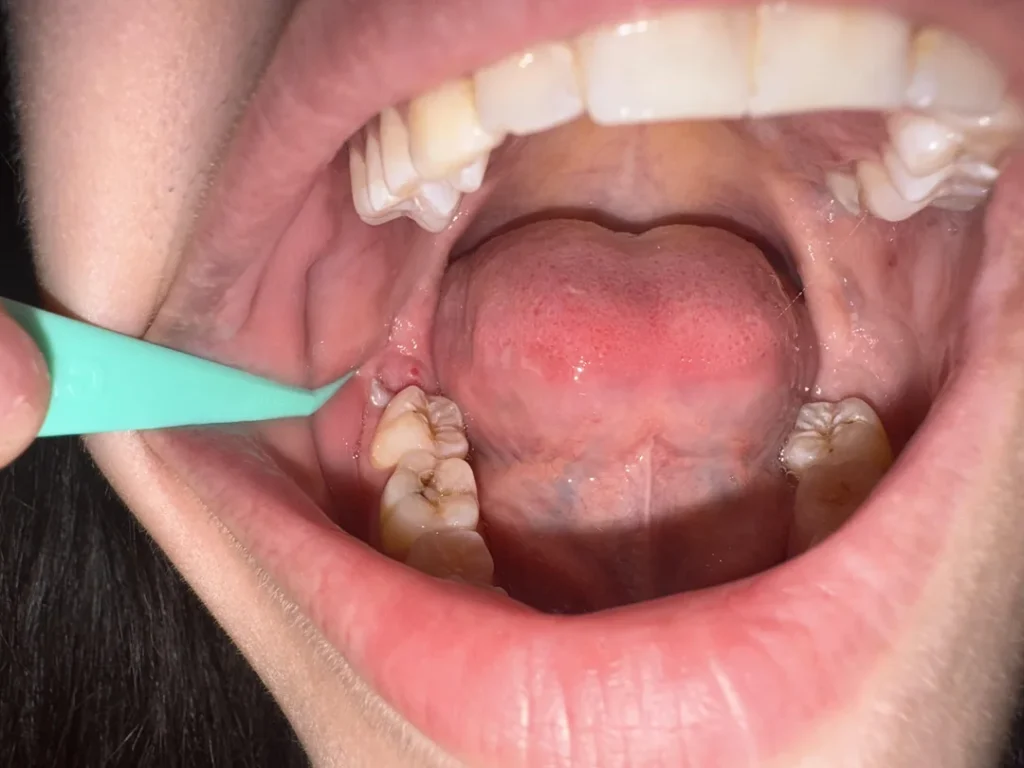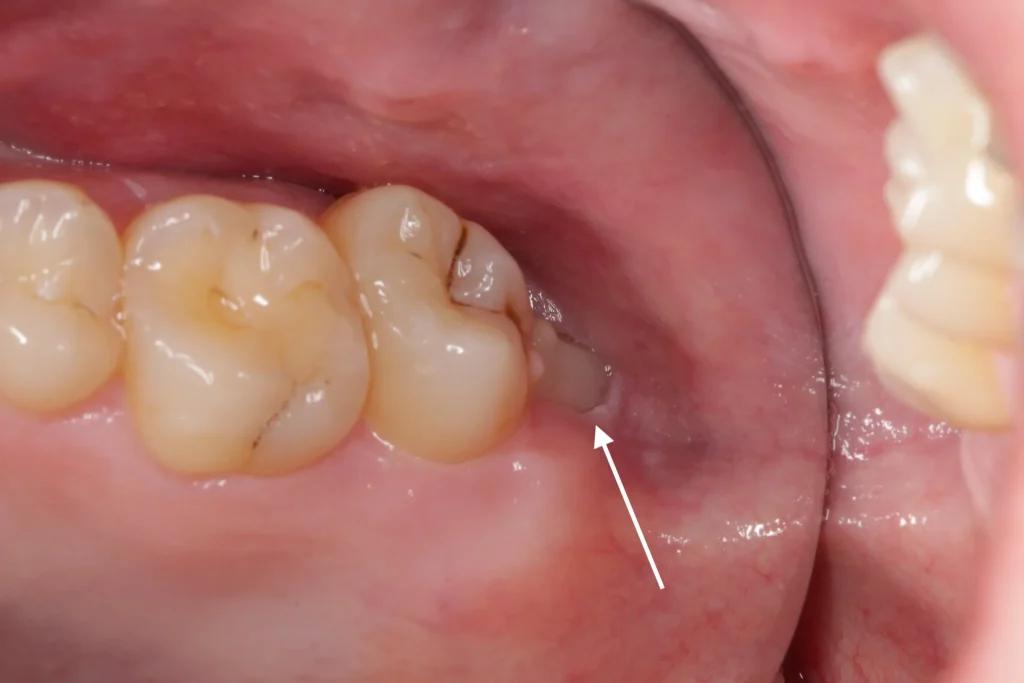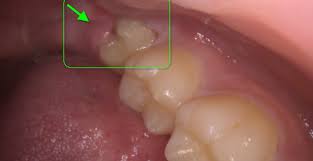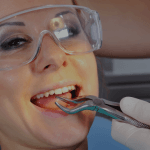The third molars, commonly called wisdom teeth, are the final teeth to erupt, typically between the ages of 17 and 25. While some people are lucky enough to have them emerge without any issues, for many, these teeth can become a significant source of discomfort and a threat to overall health. The most common reason for a wisdom tooth removal brampton is that they become impacted. An impacted wisdom tooth is one that doesn’t have enough room to grow in properly and is stuck in the jawbone or under the gum tissue.
The problems associated with impacted wisdom teeth are numerous and can become serious if left untreated:
- Pain and Pressure: An impacted or partially erupted wisdom tooth can cause intense pain and swelling. The tooth’s pressure against the neighboring
molarcan also lead to discomfort and discomfort in the surrounding teeth. - Infection and Gum Disease: When a wisdom tooth partially erupts, it creates an opening for
bacteriato enter around the tooth. This can lead to a localized infection called pericoronitis, which is characterized by redness, swelling, and pain. Over time, this can progress to more serious gum disease or periodontal disease. - Tooth Decay: Because they are so far back in the mouth, wisdom teeth are often difficult to clean. This makes them highly susceptible to tooth decay and the formation of decay. The hard-to-reach area can also be a breeding ground for germs and other contaminants.
- Damage to Neighboring Teeth: As an impacted wisdom tooth attempts to grow, its roots can press against the molar next to it, potentially causing damage to its structure and leading to
boneloss. - Cyst Formation: In rare cases, a
cystcan form around the impacted wisdom tooth. This fluid-filled sac can cause damage to the surrounding jawbone, teeth, and nerves. - Difficulty Chewing: In some cases, the improper growth of a wisdom tooth can interfere with normal chewing and bite alignment.
It is for these reasons that dentists often recommend wisdom tooth extractions as a preventative measure. For many in Brampton, an emergency removal of wisdom tooth is a reality they face when sudden, severe pain and swelling arise. Early evaluation is key to preventing these kinds of dental problems before they start.
How to remove a wisdom tooth?
The wisdom tooth removal is a common oral surgery procedure that our dentists and oral surgeon perform regularly. The exact step taken will depend on the position of your wisdom teeth and their level of impaction.
The procedure begins with a thorough examination of your mouth and an X-ray to determine the location and position of the teeth and their roots. We will then discuss the various types of anesthesia to ensure your comfort during the surgery:
- Local Anesthesia: This is administered with an injection directly to the gum tissue around the tooth and will make the area numb. You will be awake but will not feel any pain during the extraction.
- Sedation Anesthesia: Also known as IV sedation, this anesthesia is administered through a vein in your hands or arm. You will be in a state of reduced consciousness and will not remember much of the procedure.
- General Anesthesia: This is reserved for more complex cases or for patients with high anxiety. You will be completely unconscious throughout the surgery.
Once the anesthesia has taken effect, the dentist or oral surgeon will make a small incision in the gum tissue to expose the tooth and any surrounding bone. If the tooth is impacted, they may need to remove a small amount of bone that is blocking access to the wisdom tooth. The tooth itself may be divided into smaller pieces to make the extraction easier. After the tooth is removed, the surgical site is cleaned and stitches are used to close the incision. A gauze pad is placed over the area to help a blood clot form, which is crucial for the healing process. The procedure usually takes less than an hour per tooth, but can vary depending on the complexity.
How long does wisdom tooth pain last after removal?

It’s natural to wonder about how long does wisdom tooth pain last after removal? and to be concerned about the wisdom tooth removal hurt aspect. Some level of pain and swelling is to be expected after any oral surgery, as your body begins the recovery and healing process.
For most patients, the most intense pain and swelling will occur within the first 24 to 48 hours after the procedure. Following that, the pain should gradually begin to subside. You can expect the worst of the pain to be gone within 3 to 7 days, though some lingering discomfort and a minor ache can last for a week or more. The swelling of your cheek may last for up to two weeks.
It’s important to differentiate between normal post-operative discomfort and signs of infection or other surgical complications. You should contact your dentist if you experience:
- Unbearable or worsening
painthat is not relieved by prescription pain medicine. Swellingthat worsens after the second or third day.Feverorvomiting.- Pus coming from the surgical site.
- The formation of a
dry socket, which is a sharp, throbbing pain that occurs when the blood clot is dislodged.
For most, the pain associated with wisdom tooth extractions is a temporary inconvenience and a small price to pay for a lifetime of better health. The key is to closely follow all instructions given by your dentist to ensure a smooth recovery.
How to relieve wisdom tooth pain after removal?
Once you have had your wisdom tooth removal, managing the pain and discomfort is a key part of the recovery care. Here is a simple list of effective methods for the removal of wisdom tooth pain and discomfort:
- Pain Management: Your dentist will likely prescribe a
prescription pain medicineto manage the initialpainand discomfort. You can also use over-the-counter medicinelike ibuprofen or acetaminophen as instructed. It’s a goodideato take yourmedicine after mealsto avoid an upset stomach. - Cold Compress: For the first 24 to 48 hours, apply an ice pack wrapped in a
clothto yourcheekfor 15-20 minutes at a time, and then remove it for 15-20 minutes. This helps to reduce swelling andnumbness. - Gentle Rinsing: After the first day of healing, you can gently rinse your mouth with
warm salt watera few times a day. This helps to keep the surgical site clean and prevent infection frombacteria. - Rest and Elevation: Take it easy and rest for at least the first 24 hours. When you lie down, keep your head with pillows elevated. This helps to reduce swelling and promote better healing by improving blood supply.
- Soft Diet: Stick to a
dietofsoft foodslikesoup,pudding, gelatin, and smoothies. Avoid anything that requires a lot of chewing. This preventspressureon the surgical site.
These simple care measures are a crucial part of the wisdom tooth extractions aftercare. Your dentist will provide you with a comprehensive list of instructions to follow, and it’s best to adhere to them closely.
Why does wisdom tooth removal hurt?

The feeling of pain after a wisdom tooth removal is a natural and expected part of the healing process. The pain you feel is a result of several factors related to the oral surgery:
- Surgical Trauma: During the procedure, the dentist or oral surgeon has to make an incision in the gum tissue and may need to remove some bone from your jawbone to access the tooth. This is essentially a controlled trauma to the area, and the body’s natural response is to produce swelling and pain. The pressure from the surrounding tissues on the nerves can also be a source of discomfort.
- Nerve and Tissue Manipulation: The
extractionof themolarinvolves carefully separating it from the surrounding ligaments and bone. This can cause temporarynerveirritation. In rare cases, more severe nerve damage can occur, which may lead to prolongednumbnessin thelips, tongue, or cheek. - Dry Socket: This is a painful surgical complications that occurs when the blood clot in the socket is dislodged before the
healingbegins. This exposes the underlyingboneand nerves, leading to an intense, sharp pain.Dry socketis one of the most common causes of significant post-operative pain.
Your dentist will take every step to minimize this pain, from providing adequate anesthesia during the procedure to prescribing effective pain medicines and giving clear instructions for aftercare. The key to managing this discomfort is to follow those instructions carefully, which is why the wisdom tooth removal aftercare is so important.
What not to do after wisdom tooth removal?
The first few days after wisdom tooth extractions are the most critical for a smooth recovery. To prevent surgical complications and ensure proper healing, there are several things you must avoid. This list of wisdom tooth removal aftercare do-nots is essential:
- Don’t Dislodge the Blood Clot: The blood clot that forms in the socket is the foundation of the healing process. You must protect it at all costs. Avoid spitting, rinsing forcefully, or using a straw for at least 24 hours after the procedure. The suction created by these actions can dislodge the
clotand lead to adry socket. - Avoid Smoking: Smoking can interfere with the blood supply to the surgical site, introduce
germsand othercontaminantsinto the mouth, and significantly delayhealing. It should be avoided completely for as long as possible aftersurgery. - Avoid Strenuous Activity:
Physical activityor any strenuousactivitythat raises your heart rate andblood pressurecan dislodge theblood clot. It’s best to take it easy and rest for the first 48 hours. - Don’t Eat Certain Foods: Avoid crunchy, chewy, or hot solid foods that could irritate the surgical site or get stuck in the socket. Stick to the recommended
dietof soft foods. - Don’t Use Your Fingers or Tongue: Do not touch the surgical site with your
fingersortongue. This can introducebacteriaand disrupt the healing process. - Don’t Use Mouthwash: Do not use store-bought mouthwash as the alcohol and other chemicals can irritate the
surgical site. Stick to thewarm salt waterrinse as instructed by your dentist.
Following these instructions for aftercare will greatly improve your recovery and minimize the pain and discomfort you experience. Always ask your dentist if you have any questions.
Why choose Delta Park Dental?

When you need wisdom tooth removal in Brampton, you want a dental practice that you can trust. At Delta Park Dental, our experienced team of dentists and oral surgeon is committed to providing Advanced Quality Care with a compassionate touch. We understand that the thought of wisdom tooth extractions can be daunting, and our goal is to make your experience as comfortable and stress-free as possible.
We specialize in all types of tooth extraction and have the expertise to handle even the most complex cases of impacted wisdom teeth. Our state-of-the-art Facility is equipped to provide all levels of sedation, from local anesthesia to sedation anesthesia, ensuring your safety and comfort throughout the entire procedure. Our staff is trained to provide clear, easy-to-follow instructions for wisdom tooth removal aftercare, and we are always available to answer your questions and provide Follow-up care to monitor your recovery.
We take the time to create a personalized treatment plan for each of our patients, whether you need an emergency removal of wisdom tooth or a simple evaluation. Our focus is on your health and well-being, and we are dedicated to helping you maintain a beautiful and pain-free smile. Trust our team to provide the expert care you deserve.
Conclusion
Wisdom teeth can be a source of significant oral health issues, but their removal is a common and safe procedure that can prevent future complications. By understanding why extraction is often necessary and how to properly care for yourself during recovery, you can approach the process with confidence. At Delta Park Dental, we are here to guide you every step of the way, ensuring a smooth and comfortable experience that puts your long-term oral health first.
Tags
- Dental Bridges
- Veeners Dental
- Veeners Dental Near Me
- Root Canal Treatment near me
- Dental Bonding In Brampton
- Bridge Dental Brampton
- Dental Bridge Brampton
- Emergency Dental Brampton
- Dental Bridges Near Me
- Dental Veneers Near Me
- Veneers Dental
- Root Canal Therapy
- Dental Emergency Near Me
- Emergency Dentistry
- Brampton Dental Implant
- Dental Implant Brampton
- Dental Implant
- Dental Implant in Brampton
- Dental Veneers
- Dental Veneer
- Dental Filling Before and After
- Whiten Teeth
- crown dental implant
- Dental Crown in Brampton
- Whitening Teeth
- Wisdom Teeth Removal
- Dental Bonding
- Dental Bonding Near me
- Dental Crown Near Me
- Dental Crown Brampton
- Wisdom Teeth Extraction
- Wisdom Tooth Removal
- Dental Crown
- Dental Teeth Whitening
- Wisdom Tooth Extraction
- Dental Filling Brampton
- Dental Filling
- Teeth Whitening Dentist
- Dental Fillings
- Teeth Extraction
- Dental Filling Near me
- Teeth Whitening Near Me
- Dental Emergency Brampton
- Tooth Extraction
- Emergency Dentistry Services



